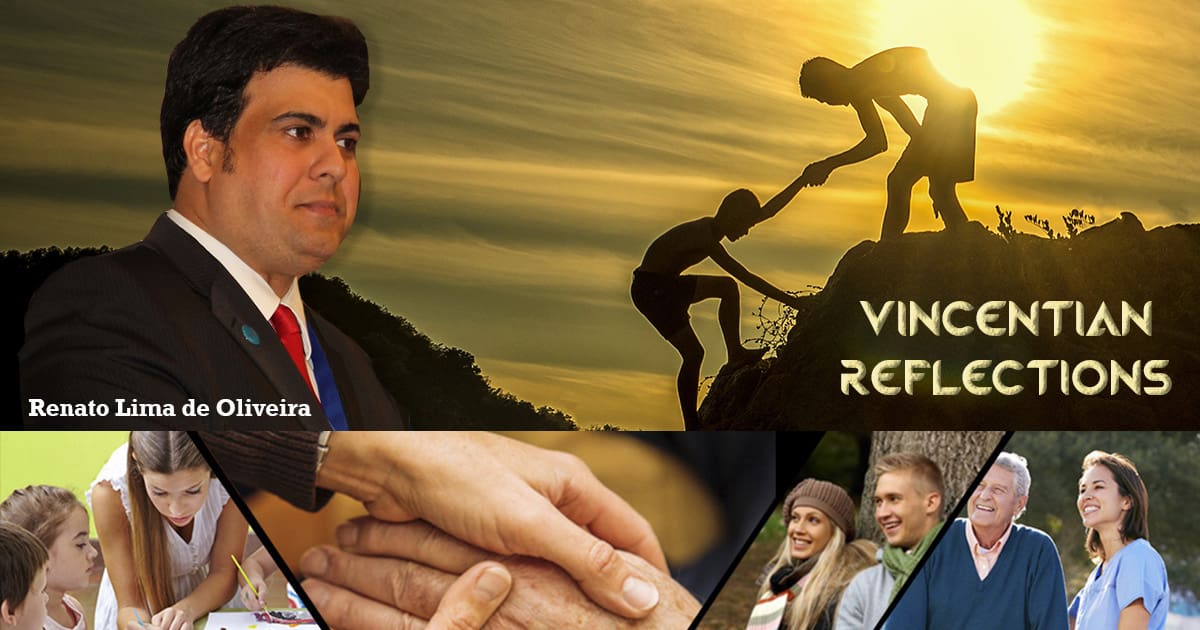Only those who help the poor and practice charity disinterestedly will understand the content of this chronicle. We will try to show, based on the Bible and the Catechism of the Catholic Church, something that American scientists have already shown: offering to help others suits us. It does us all a lot of good, not only for the healthy benefits that our body and our mind receive for making an act of love, but also for the added favor that we obtain before God because we have been generous and supportive.
In the Gospel of Saint Luke we find these words of Jesus: “Give and it will be given to you.”[1] That is to say: the more we give to the needy, without pretensions, the more blessings and successes in life God will grant us. Certain Christian denominations preach the opposite, demanding that God give us everything here and now, if we give good tithes. But, in fact, the reward, abundant, will come through the practice of charity with the poorest. Therefore, the more we give, the more God will also give us and bless our life. We do not always see the signs of this grace, but they exist and can happen years later, without us noticing.
In the book of the Acts of the Apostles, St. Paul teaches us that “you must work hard to help the weak,” and concludes: “there is greater happiness in giving than in receiving.”[2] Now, what the Vincentians do with their weekly home visits is exactly that, help the weak. And we all know the joy of being able to help, because we learn a lot from our “masters and lords” and, with them, we find our personal sanctification. Saint Francis of Assisi was one of the Catholic saints who most practiced this sentence of “giving is how we receive” when he speaks of “Lady Poverty” and “Sister Charity.”[3]
Another noteworthy passage is found in the second letter of St. Paul to the Corinthians, where he wrote that “Now may he who supplies seed to the sower and bread for food, supply and multiply your seed for sowing, and increase the fruits of your righteousness.”[4] The text is very clear: if we act doing good, we will be rewarded with much fruit. In the Gospel of Mark, Jesus promises “the hundredfold and the Kingdom of Heaven”[5] for the sake of the Gospel.
In addition, the practice of charity forgives our faults, as Saint Peter says, in his first letter: “And above all things be earnest in your love among yourselves, for love covers a multitude of sins.”[6] The Catechism also teaches us that, together with prayer, penance and fasting, the practice of works of charity and fraternity are fundamental for the Christian’s life. But we can not forget that good action (giving alms), if carried out maliciously (boastfully), becomes an evil: “Therefore when you do merciful deeds, don’t sound a trumpet before yourself. […] When you do merciful deeds, don’t let your left hand know what your right hand does.”[7]
Therefore, helping the poor is good for the one who helps, pleases God, fills us with blessings, fulfills the evangelical mission in a high degree of mercy and contributes to the reduction of social inequalities that exist in every corner of the earth, anticipating the Kingdom of God among us.
As a final message, let us meditate on the incomparable framework of charity that the Apostle Paul left us: “Love is patient and is kind; love doesn’t envy. Love doesn’t brag, is not proud, doesn’t behave itself inappropriately, doesn’t seek its own way, is not provoked, takes no account of evil; doesn’t rejoice in unrighteousness, but rejoices with the truth; bears all things, believes all things, hopes all things, endures all things.”[8]
[1] Luke 6:38.
[2] Acts 20:35.
[3] In the well-known sentence attributed to Saint Francis of Assisi we find this text:
Lord, make me an instrument of your peace,
Where there is hatred, let me sow love;
Where there is injury, pardon;
Where there is doubt, faith;
Where there is dispair, hope;
Where there is darkness, light;
Where there is sadness, joy;
O Divine Master,
Grant that I may not so much seek
To be consoled as to console;
To be understood as to understand;
To be loved as to love.
For it is in giving that we receive;
It is in pardoning that we are pardoned;
And it is in dying that we are born to eternal life.
[4] 2 Corinthians 9:10.
[5] Cf. Mark 10:29-30.
[6] 1 Peter 4:8.
[7] Mathew 6:2-4.
[8] 1 Corinthians 13:4-7.
Renato Lima de Oliveira
16th General President of the Society of Saint Vincent de Paul








0 Comments